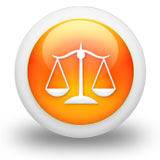We need your consent to use the individual data so that you can see information about your interests, among other things. Click "OK" to give your consent.
ASTM E207-08(2015)e1
Standard Test Method for Thermal EMF Test of Single Thermoelement Materials by Comparison with a Reference Thermoelement of Similar EMF-Temperature Properties (Includes all amendments And changes 7/12/2021).
Automatically translated name:
Standard Test Method for Thermal EMF Test of Single Thermoelement Materials by Comparison with a Reference Thermoelement of Similar EMF-Temperature Properties
STANDARD published on 1.5.2015
The information about the standard:
Designation standards: ASTM E207-08(2015)e1
Note: WITHDRAWN
Publication date standards: 1.5.2015
SKU: NS-590634
The number of pages: 7
Approximate weight : 21 g (0.05 lbs)
Country: American technical standard
Category: Technical standards ASTM
The category - similar standards:
Annotation of standard text ASTM E207-08(2015)e1 :
Keywords:
calibration, emf, ice point, junction, Pt-67, reference temperature, Seebeck coefficient, temperature, thermoelectric emf, thermoelement, thermocouple ,, ICS Number Code 17.200.20 (Temperature-measuring instruments)
Additional information
| Significance and Use | ||||||||||
|
5.1 This test method is designed to calibrate a thermoelement at one or more test temperatures. The data obtained are sometimes referred to as initial values of emf because the time at the test temperature is limited. 5.2 This test method is employed mainly by providers of spools or coils of wire or strip of thermoelectric material. Generally more than one specimen at a time is tested, and the resultant emf of individual thermoelements are used to match to companion thermoelements for use as thermocouples or in extension wiring. 5.3 The emf of a thermocouple comprised of two different thermoelements as tested with this test method may be determined by algebraically subtracting the emf of the negative thermoelement from the emf of the positive thermoelement at a particular temperature. The emf of a thermocouple may also be determined by the test described in Test Method E220, but Test Method E220 does not take into account the values of the emf of the individual thermoelements relative to Pt-67. 5.4 This test method is normally used for the calibration of thermocouple materials during their production or distribution, not for the accurate determination of the properties of a used thermocouple. If the test samples were subjected to previous use, the test results may not reflect the same emf as the thermocouple did while in service. For example, inhomogeneities may have been induced in the wires because of a chemical or metallurgical reaction while in service. Since emf is developed in the thermal gradient, and it is unlikely that the temperature profile along the wire under testing conditions will be the same as it was while in service, the test results may be misleading. 5.5 The test results are suitable for specification acceptance, manufacturing control, design, or research and development purposes. |
||||||||||
| 1. Scope | ||||||||||
|
1.1 This test method covers a test for determining the thermoelectric emf of a thermoelement versus NIST platinum 67 (Pt-67) by means of measuring the difference between the emf of the test thermoelement and the emf of a reference thermoelement (previously referred to as a secondary standard), which has a known relationship to NIST Pt-67. 1.2 This test is applicable to new thermocouple materials over the temperature ranges normally associated with thermocouples and their extension wires. The table on Suggested Upper Temperature Limits for Protected Thermocouples in Specification E230 lists the ranges associated with the letter-designated types of thermocouples. 1.3 This test is not applicable to stability testing or inhomogeneity testing. 1.4 The values stated in SI units are to be regarded as the standard. The values given in parentheses are for information only. 1.5 This standard does not purport to address all of the safety concerns, if any, associated with its use. It is the responsibility of the user of this standard to establish appropriate safety and health practices and determine the applicability of regulatory limitations prior to use. |
||||||||||
| 2. Referenced Documents | ||||||||||
|
Similar standards:
Historical
1.12.2014
Historical
1.5.2009
Historical
1.5.2011
Historical
1.6.2010
Historical
1.6.2013
Historical
1.4.2013
We recommend:
Updating of laws
Do you want to be sure about the validity of used regulations?
We offer you a solution so that you could use valid and updated legislative regulations.
Would you like to get more information? Look at this page.



 ASTM E1137/E1137M-08..
ASTM E1137/E1137M-08.. ASTM E1159-98(2009)..
ASTM E1159-98(2009).. ASTM E1256-11a
ASTM E1256-11a ASTM E1299-96(2010)..
ASTM E1299-96(2010).. ASTM E1350-13
ASTM E1350-13 ASTM E1363-13
ASTM E1363-13
 Cookies
Cookies
